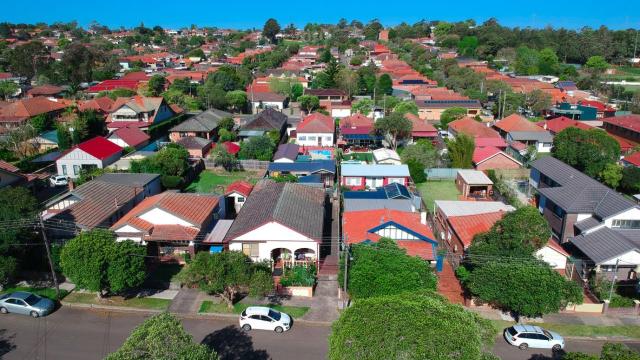In the polarised debate about the Voice to Parliament referendum, some proponents of the “no” vote have claimed the creation of the new advisory body would lead to the conversion of private land titles in Australia to native title.
The implication is that people will be forced to give up their land. This has sown fear among some Australians.
Last week, a false letter purporting to be from a member of the First Peoples’ Assembly of Victoria was distributed to homes in regional Victoria, saying the body was moving into the “next phase of reacquiring land”. The minister for Indigenous Australians, Linda Burney, called it “another example of the dirty tricks campaign” being waged to sow doubt over the Voice referendum.
Similar concerns were raised following the High Court decision in the Mabo case in 1992 and passage of the Native Title Act a year later.
Like the fear-mongering over the Mabo decision, the current alarm over the potential loss of private lands with a Voice to Parliament is unwarranted because this claim is manifestly incorrect.
There are two foundational legal reasons why:
- because of the words of the proposed constitutional amendment itself
- and because of the way that native title works.
Would the proposed Voice have powers related to land?
The proposed constitutional amendment that would create the Voice is very simple. It seeks to insert one new section into the Constitution, which reads:
In recognition of Aboriginal and Torres Strait Islander peoples as the First Peoples of Australia:
- there shall be a body, to be called the Aboriginal and Torres Strait Islander Voice;
- the Aboriginal and Torres Strait Islander Voice may make representations to the Parliament and the Executive Government of the Commonwealth on matters relating to Aboriginal and Torres Strait Islander peoples;
- the Parliament shall, subject to this Constitution, have power to make laws with respect to matters relating to the Aboriginal and Torres Strait Islander Voice, including its composition, functions, powers and procedures.
The words clearly provide for only one activity to be undertaken by the Voice. The new body “may make representations” on matters relating to Aboriginal and Torres Strait Islander people.
There is no express or hidden power to either take people’s land or give land to First Nations people. The Voice is a committee that may provide advice to parliament and government on issues relating to First Nations people. That is all.
And this advice is not binding. The parliament of the day is free to ignore it, if it wishes to.
The new provision also gives one sole power to the parliament – it would have the capacity to set up the Voice. It is not possible to understand this provision as creating a special power to take people’s land, or to “convert” land to native title.
Importantly, the power to establish the Voice would not be given to the government – it would belong to parliament. In exercising this power, normal parliamentary processes will apply and the parliament will be accountable to the public.
There are no other changes to the Constitution proposed in this referendum.
How native title works
In the famous Mabo case, the High Court found that the land title of Aboriginal and Torres Strait Islander people, held under their traditional law and custom, survived the introduction of British sovereignty over Australia.
Mabo confirmed native title can only be claimed over land where there is no interest in conflict with the exercise of this right. Native title will always give way to grants of exclusive land use.
Following this decision, the law now states that every grant of freehold land (“private” land) extinguishes native title. Further, in the later case of Fejo v Northern Territory, the High Court confirmed that once native title has been extinguished, it cannot be revived.
Consequently, even if the constitutional change creating the Voice did (somehow) recognise native title, it is not possible to “convert” freehold land to native title. On private land, native title no longer exists under Australian law.
To put these claims of “land conversion” in context, it is helpful to recall the public response to the Mabo decision.
Following the High Court judgement in Mabo, the mining industry ran a national campaign asserting that native title would threaten people’s backyards. The managing director of Western Mining, Hugh Morgan, said the High Court’s decision
put at risk the whole legal framework of property rights throughout the whole community.
This campaign led to significant public fear about the effects of native title.
These claims about native title after Mabo were incorrect. Private landholdings have not been threatened. Indeed, on the ten-year anniversary of the Mabo decision, former Victorian Premier Jeff Kennett even admitted that his initial fears had been unfounded.
In reading or listening to claims about the effect of the Voice, it is prudent to question the source of information. If you have questions, seek a reliable source to read the words of the proposed amendment and understand the objective of the constitutional change. If you hear of a claim that seems extreme, it may well be aimed at diverting the public’s attention from the real issues.
Kate Galloway, Associate Professor of Law, Griffith University
This article is republished from The Conversation under a Creative Commons license. Read the original article.
Lead Image Credit: iStock

Leave a Reply
You must be logged in to post a comment.